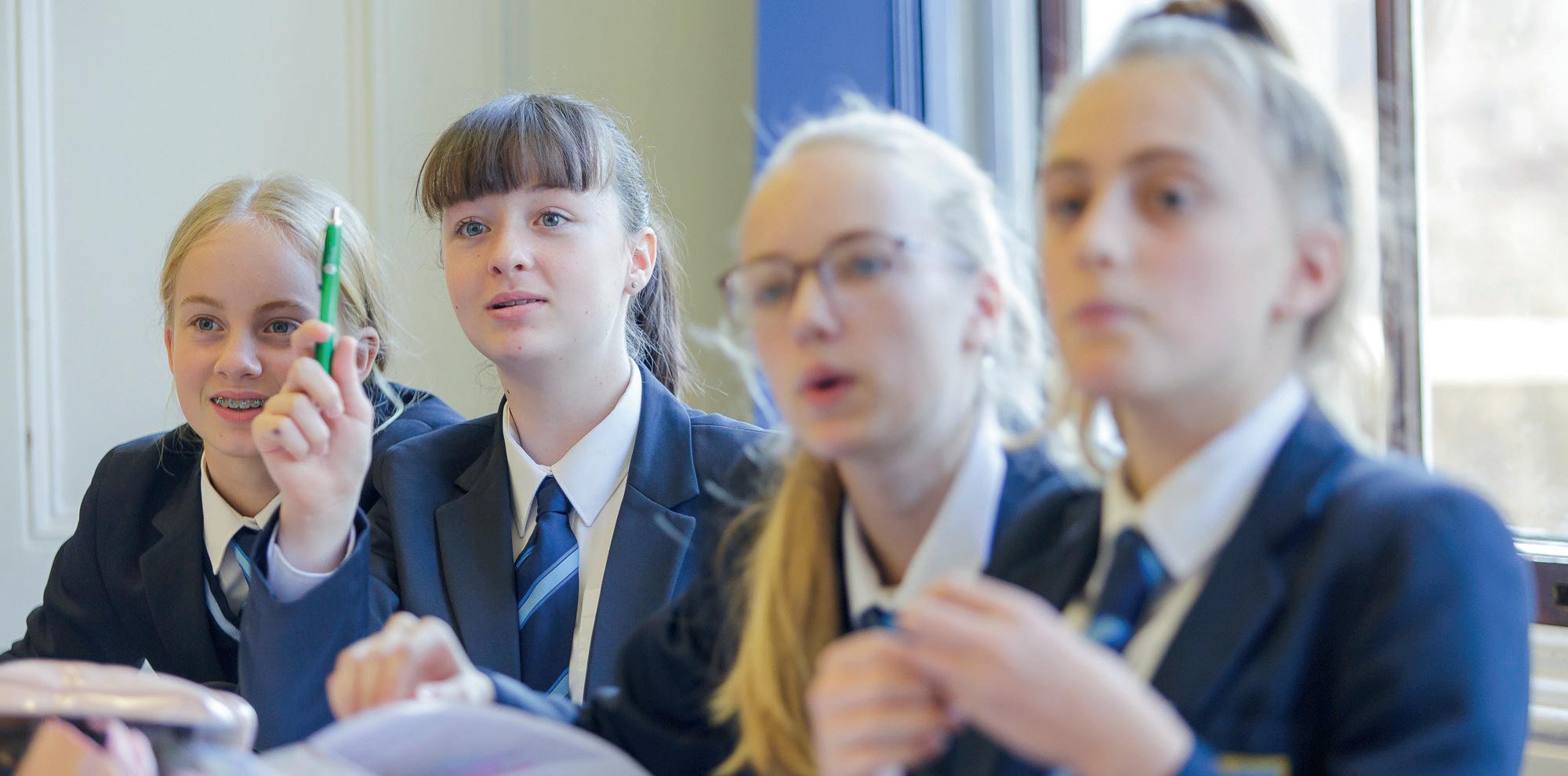
3 minute read
AN INTRODUCTION TO THE KING’S SENIOR SCHOOL
Academically, the children find First Form work more varied and demanding. They are taught each subject by a specialist teacher and will move around the School between lessons. Children are introduced to subjects such as French and Spanish, which they may not have studied before. Their study of other subjects also broadens, and they begin to build the skills on which GCSEs ultimately depend.
The aim of the teachers at King’s is to make all subjects as interesting and exciting as possible, challenging the able pupils and supporting those who find certain subjects more difficult.
Socially, children develop many new relationships in the First Form. Typically, more than half of our First Form children are new to the School, coming from a variety of local schools.
Although they are growing up fast, First Form pupils are still children, who benefit greatly from the support of their tutors and teachers during this time of change. Excellent pastoral care is a real strength of the King’s School community, and we work hard to ensure that the children settle in to life in the Senior School, and enjoy their time spent in the First Form.
This booklet sets out the broad and balanced curriculum that we offer our First Form pupils, and will give you an idea of the topics that will be covered during your child’s first year at King’s. We recognise that learning outside the classroom is vital to the development of your child, and you will find information here about the range of co-curricular opportunities that we offer our pupils.
We look forward to welcoming your child into the Senior School.
Claire Beard Head of First Form
The English course in the First Form is designed to be inspiring, enjoyable and practical. Pupils enter this year with a variety of backgrounds and skills and we offer them all a methodical course that covers basic skills as well as providing stimulating new experiences. We begin the year reading a recently published novel with the pupils and often correspond with the author, following the book’s reception. This has been a great way to see how exciting literature can be and to be there at the start of some successful and prize winning series.
During their first year at King’s, pupils will learn and revise many key skills ranging from formal induction sessions in the library, to work on developing sentence structure and vocabulary. We combine this with the opportunity to research the fascinating lives of some of the world’s best writers. We embed spelling and grammar in context using set texts.
Much of the work we do is based on reading excellent books, and we want all our pupils to come to love literature. Lessons also encourage discussion and debate. The study of Shakespeare is a particular strength at King’s and we introduce his world and theatre during the First Form.
Creative writing is another important skill; we believe all pupils are writers and have voices that are worth hearing and developing. We aim to develop pupils’ writing for different audiences, and class work is supplemented by literary competitions, encompassing events such as
World Book Day. Writing helps pupils understand their own experiences and imagine others. It also promotes confidence, enjoyment and self-development.
Reading is crucial, of course, and all pupils have an allocated reading period in the library. What they read (within reason) is their choice – but they will experience a wide variety of texts, including at least one novel, plays, poetry and media. As they read, we hope they will begin to respond to texts with more sophistication, moving from plot and character to a deeper appreciation of the English language.
Just as we have our own reading lists and programmes, we have our own spelling lists too and these are designed both for strong spellers and those who may be weaker in English.
All pupils receive lessons in mixed ability groups, where work is carefully differentiated both to stretch and challenge the most able and support those who find it harder. Liaison with Learning Support is strong and extra lessons and help are always there for those who find the work challenging.
Homework, which the school calls prep, is set regularly and we expect a substantial piece of writing to be produced each week. Feedback on prep is detailed and constructive, this is how we encourage our pupils to find their feet and grow in confidence.











